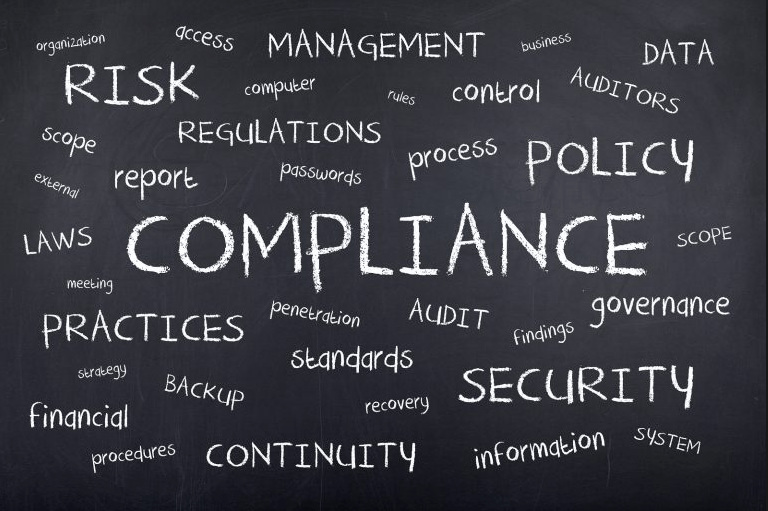A classic Fintech startup has a tight budget making it difficult to hire a dedicated Chief AML Compliance Officer (CAMLO). This leads them to designating either a founder or other members in the organization to take on this role as a portion of their overall responsibilities. While this seems like a great way to save some money, it can lead to costly mistakes and fines if the individual designated is not properly prepared. But, before getting into cost-effective ways of designating a qualified CAMLO, we’ll first go over why a CAMLO is required.
Why You Need a CAMLO
Many countries around the world have adopted the Financial Action Task Force (FATF) recommendations which requires a CAMLO be designated. For example, in implementing the Bank Secrecy Act (BSA), the United States government appointed various regulators and oversight groups like FinCen, FINRA, and the SEC. These groups ensure that identified entities, including most FinTech, comply with all AML regulations. FINRA is an example of a Self-Regulatory Organization (SRO) that ensures all dealer-brokers implement an Anti-Money Laundering Compliance Program. This program requires that the AML Compliance Officer (ie. CAMLO) oversee the program and provide a point of contact between the organization and FINRA. Other requirements of an AML Compliance Program under FINRA Rule 3310 include:
- Written approval of the program by senior management
- Reasonable assurance of detection and reporting any suspicious activity
- Achieve reasonable compliance with all AML regulations with a risk based customer identification program
- Provide regular independent testing
- Continuous training for all relevant employees and customers
So, to achieve full compliance your organization is required to designate one of the members of your organization as your CAMLO.
The Roles and Responsibilities of a CAMLO
Essentially, your CAMLO is responsible for ensuring your Fintech startup efficiently complies with all AML regulations. This takes the form of managing risks, advising on business strategies, training relevant employees, staying up to date on changing regulations, and finding cost saving methods to achieve compliance.
Your CAMLO helps your organization determine your acceptable level of risk when it comes to complying with AML regulations. Once your risk levels are determined, they create an AML Compliance Program according to your acceptable risk. While an effective compliance program is required, what constitutes “effective” is left up to interpretation leaving room to match the program to your organization.
A CAMLO also advises on your business strategies to ensure your methods of growth still allows for AML compliance. Taking their recommendations and utilizing them keeps your risks of violating any regulations to a minimum. This also ties into training relevant employees. Keeping those in charge of business strategy up to date on how your organization maintains AML compliance enables them to make better decisions on how to grow your business.
The complexity of AML regulations cannot be understated. As they constantly shift to keep up with new technologies and demands, your CAMLO must understand how they continue to evolve. Some of these shifting rules could lead to ways you can save on your compliance costs. Your CAMLO can identify these regulations and alter your AML Compliance Program accordingly.
Legal & Financial Accountability
Prior to designating yourself or one of the members of your organization as a CAMLO, they need to understand the risks they are taking. If your startup is found to be in violation of AML regulations whomever you designate as your CAMLO can be held personally responsible. For example, MoneyGram’s AML Compliance Officer paid a $250,000 penalty for failing to comply with regulations in New York State. These violations included failure to terminate their relationship with fraudulent organizations and failure to implement organizational policies to terminate relationships with high risk organizations.
In just February of 2018 two other cases like this penalized the compliance officer of the US Bank and Rabobank. The liability of a CAMLO significantly changed after Wells Fargo’s officer was found in violation in November of 2017. Prior to this case, most violations were directed at the organization instead of the individual. This new wave of charging individuals instead of organizations alleviates some responsibility. However, it makes it more difficult for Fintech startups to designate themselves as their organization’s CAMLO without taking on unnecessary risks. So, if you are considering designating yourself as your startup’s CAMLO, you must be sure you fully understand how to achieve full compliance to minimize your personal risk. You may wish to consider ensuring your E&O insurance covers this type of risk.
Alternative Options to Ensure Compliance and Minimize Risk
There are several cost-effective options to ensure full compliance with AML regulations and avoid taking unnecessary risks. These options can include:
- Employing a part-time expert and designating them as your CAMLO
- Hiring a consultant to review and advise you on maintaining your compliance program
- Create a culture of training and learning to ensure your entire organization helps maintain AML compliance
Employing a part-time expert provides a simple way to avoid personal risks of violating AML regulations. They will most likely request that your E&O cover them in any lapses your organization has failed to implement. They can fully understand your organization and goals to create programs that ensure compliance. While this is likely the most expensive method of designating a CAMLO, it minimizes your personal and organizational risks.
Hiring a consultant does not provide you with a CAMLO, however it does minimize the risks associated with designating yourself as your organization’s compliance officer. They can create your compliance program and advise you on how to implement the program. The consultant can also train your employees on keeping your startup fully compliant. Keeping this culture of training and learning helps your employees stay up to date on changing regulations long after the consultant has finished their work. Here are 5 Key Aspects to Finding the Right CAMLO when you to to hire a consultant.
Conclusion
While becoming the Chief AML Compliance Officer for your fintech startup is possible, it requires extensive work, preparation, and ongoing maintenance to keep yourself qualified and your firm from being fined for a violation. KYC2020 offers a quiz to help you assess your basic knowledge of AML compliance regulations by your business type. Take the quiz and find out whether you should even consider putting on the CAMLO hat and take on the additional liability.
KYC2020 also supports a network of certified independent AML specialists that can advise you on effective options to maintain compliance. They look into your organization and how you operate to provide cost-effective plans your organization can follow. At first glance AML compliance may seem like a burden to getting your fintech startup off the ground, however it does not have to be complicated or costly with the help of KYC2020.







